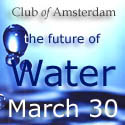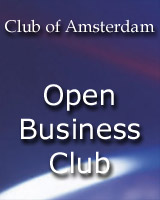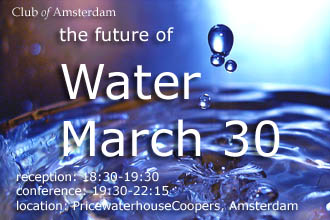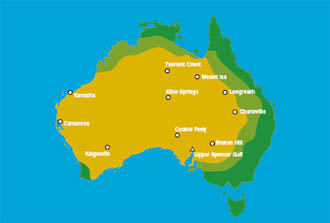
The Gender and Water Resource Guide
The Gender and Water Resource Guide
Integrated Water Resources Management (IWRM) is a cross-sectoral policy approach to respond to the growing demands for water in the context of finite supplies.
Policy makers, analysts, international organizations and governments have sought consensus on principles to guide the setting of priorities, policymaking and the elaboration of specific initiatives. Key points include:
- Water should be treated as an economic, social and environmental good;
- Water policies should focus on the management of water and not just on the provision of water;
- Governments should facilitate and enable the sustainable development of water resources, including a regulatory framework;
- Water resources should be managed at the lowest appropriate level; and
- There should be recognition that women play a central role in the provision, management and safeguarding of water.
UNDP’s [United Nations Development Programme] water strategy draws on the thinking behind the global IWRM policy discussion and focuses on capacity-building for the governance of water resources and the aquatic environment. It is also linked to four UNDP focus areas: poverty reduction, livelihoods, environmental protection and gender equality.
Introducing Gender Poor targeting, inequitable distribution of benefits and burdens, and poor operation and maintenance structures have hindered development projects aimed at addressing issues of sustainable development in water resources management. Community participation and management approaches have failed to address these issues largely because communities are often seen as a collection of people with a common purpose. |
Gender refers to the roles and responsibilities of men and women and the relationship between them. Gender does not simply refer to women or men, but to the way their qualities, behaviours and identities are determined through the process of socialization. These roles and responsibilities are culturally specific and can change over time. Gender is seen as the social construction of men’s and women’s roles in a given culture or location.
Within this overall context, UNDP has defined its gender approach as: Taking account of gender concerns in all policy, programme, administrative and financial activities, and in organizational procedures, thereby contributing to a profound organizational transformation. Specifically… bringing the outcome of socio-economic and policy analysis into all decision-making processes of the organization, and tracking the outcome. This includes both the core policy decisions of the organization, and the small, everyday decisions of implementation.

Maria Arce, Executive Secretary, Gender and Water Alliance
Maria Arce is a speaker at our event about the future of Water on March 30th.
News about Water

360 million Chinese without safe drinking water; chronic shortages in cities
by Asia AFP
More than 360 million rural Chinese remain without safe drinking water and cities are facing chronic supply shortages, raising serious health concerns, senior officials warned.
Zhai Haohui, vice minister of water resources, urged the government to devote more money to tackling the issue, the China Daily reported.
“Priorities of the government investment should be given to the construction of more projects capable of supplying clean drinking water for all people throughout China, particularly the millions of rural people plagued by unclean drinking water,” he said.
“Hundreds of thousands Chinese are afflicted with various diseases from drinking water that contains too much fluorine, arsenic, sodium sulfate or bitter salt,” said Wang Shucheng, minister of water resources.
Zhai, the vice-minister of water resources, said the plan was to provide safe drinking water for all rural people by 2020.

2005 Stockholm Water Prize
The Center for Science and Environment, based in New Delhi, India, won the Stockholm Water Prize “For a successful recovery of old and generation of new knowledge on water management, a community-based sustainable integrated resource management under gender equity, a courageous stand against undemocratic, top-down bureaucratic resource control, an efficient use of a free press, and an independent judiciary to meet these goals.”
The Centre for Science and Environment (CSE) is an independent, public interest organisation which aims to increase public awareness on science, technology, environment and development. The Centre was started in 1980.
For more than two decades, CSE has been creating awareness about the environmental challenges facing our nation. Searching for solutions that people and communities can implement themselves. Challenging India to confront its problems. Inspiring it to take action. Pushing the government to create frameworks for people and communities to act on their own.
News about the Future

Leitra
The Leitra is a new type of non-motorized vehicle designed for commuting, shopping, distribution of light goods, recreation and touring. The international term for this type of vehicle is a velomobile. It is fast, but not designed specificly for racing. The primary considerations for the design of this tri-cycle with full fairing were: Safety in normal traffic, cycle comfort in cold, windy and wet weather, sufficient payload for touring and shopping, reliability in daily operation – also in wintertime.

Vitamin Enriched’ Rice Reignites GM Debate
by BBC
The genetically modified food debate has flared up again after it was reported British scientists have developed a new GM strain of “golden rice”, which produces more beta-carotene than before.
The strain produces about 20 times as much as previous varieties, the BBC reported.
The human body converts beta-carotene into vitamin A, and the breakthrough could help reduce deficiency of the vitamin and childhood blindness in developing countries, the report said.
The new variety has been developed at the British laboratories of the biotechnology company Syngenta.
The BBC said Syngenta would make the rice available for free to research centers across Asia, who will, if they are given the go-ahead by their governments, begin field trials.
Next Event: Wednesday, March 30
Desert Knowledge Australia
| Desert Knowledge Australia To live and thrive in desert regions, people require particular knowledge and know-how. Australia has extensive scientific and technical knowledge as well as thousands of years of accumulated indigenous expertise and other skills relevant to desert livelihoods. The knowledge that resides within inland Australia – individually and collectively – about successfully developing and sustainably living in harmony with these arid lands is of great value. These abilities have commercial potential in other desert countries facing problems such as installing renewable energy supplies, encroaching desertification, productive land management and service delivery over large distances to highly dispersed small communities. Knowledge Clusters Natural Resource Management People living and working in rangeland areas have indisputable know-how and technical skills in managing these lands. With an initial focus on the market potential of the many native food and medicinal plants used by Aboriginal people, this cluster is addressing horticultural, wild harvest, intellectual property, marketing and research requirements for this unique and valuable industry. Technical Solutions This cluster explores the physical infrastructure and technical services for desert communities. Areas include building, design and construction, water and energy use, waste disposal, transport and communications. Health, Education and Social Services Primarily focussing on efficiency and methodology of remote delivery of health and educational services, this cluster will distil knowledge of better systems of governance and key service delivery. Towards a Solar Region Renewable energy presents many opportunities for the knowledge economy in desert Australia. This cluster focuses on the development of viable renewable energy alternatives. Graduate Centre for Desert Knowledge Local bodies already host many post-graduate students. This cluster will work actively in partnership with Australian and international universities to co-ordinate and facilitate an expansion of post-graduate study across in-land Australia. To assist with this, a comprehensive list of suggested projects and support resources has been compiled and published. Sustainable Communities This cluster is working to improve regional outcomes by integrating economic, social and environmental knowledge. The program focuses on how local and remote communities can best interact with business and industry, in particular art and tourism, to improve regional life. |
Summit for the Future Report 2005
Summit for the Future Report 2005

The Club of Amsterdam released the Summit for the Future Report. You can download it for FREE [190 pages, pdf, 2,77MB]: https://clubofamsterdam.com/2020/10/27/summit-for-the-future-2005/
Recommended Book


Oceans 2020: Science, Trends, and the Challenge of Sustainability
by Gotthilf Hempel, C. P. Summerhayes, John G. Field, IOC, SCOR, SCOPE
Oceans 2020 presents a comprehensive assessment of the most important science and societal issues that are likely to arise in marine science and ocean management in the next twenty years. Sponsored by the Intergovernmental Oceanographic Commission (IOC), the Scientific Committee on Oceanic Research (SCOR), and the Scientific Committee on Problems of the Environment (SCOPE), the book brings together the world’s leading ocean scientists and researchers to analyze the state of marine science and technology, identify key scientific issues for sustainable development, and evaluate the capability of scientists, governments, and private-sector stakeholders to respond to those issues.
Oceans 2020 suggests what can be done about major marine environmental issues through the better development and application of marine science and technology, focusing on the issues that are most closely related to human and sustainable development. It will help guide countries in developing their marine science and technology strategies and priorities and is an essential source of information for policymakers, government officials, resource managers, scientists, the media, and all those concerned with the current and future health of the oceans.
Enculturated Management Models – the Need of a Globalised World
| Enculturated Management Models – the Need of a Globalised World by Leif Thomas Olsen, International Centre for Consulting Excellence (ICfCE) |
| Anthropologist Melville Herskovits’ wrote that ‘Given the premise, the logic is inescapable’, and psychologist Harry Triandis described culturally derived premises as “unstated assumptions, standard operating procedures, ways of doing things that have been internalized to such an extent that people do not argue about them”. So how come the so-called ‘international community’ so often, in spite of their lead agent’s (IMF – International Monetary Fund) failings in the handling of two major economic crises of the 1990s, still make the mistake to believe that the Washington Consensus has universal following? Could the answer not be that this Washington Consensus is in itself a culture, with its own culturally derived “unstated assumptions”? A string of ‘formulas’ may help to explain the links between culture as a phenomenon and the action we take in the name of it. Let me here suggest that our everyday logic is heavily influenced by the following interrelated developments: |
On the Social Level (LS): Cultural Values (CV) + Environment (E1) = Cultural Application (CA)
On the Empirical Level (LE): + Cultural Application (CA) + Experience (E2) = Cultural Premise (CP)
On the Logical Level (LL): Observations (O1-n) + Cultural Premise (CP) = Cultural Conclusion (CC)
On the Action Level (LA): + Cultural Conclusion (CC) + Resources (R1) + Resolve (R2) = Cultural Behaviour (CBe)
xplained in simple English this means that the application of our cultural values will be shaped by the environment we operate in. For instance, a newly arrived Chinese immigrant to the US may act differently in a given situation in the US, compared to what s/he would have done in China, not necessarily because of an immediate change in his/her cultural values, but because the US environment (in which s/he now operates) is very different from China, making the ‘normal’ behaviour impractical, or even unrealistic. As s/he gains experience from operating in a ‘new’ environment, this experience will also start to affect his/her premises (underlying assumptions). This means that instead of assuming a certain type of development based on past experiences, s/he will now begin to assume different types of developments, based on fresh experiences in the new environment, combined with the ‘old’ references that s/he still retains. Once these new premises start to ‘stick’ in his/her consciousness, a new type of logic will develop, one that most probably can be said to position itself somewhere between the old logic s/he used to apply, and the prevailing logic in his/her new environment. Armed with this new logic, and given whatever resources and resolve s/he has and/or can muster, s/he will act in whatever way s/he now finds ‘logical’. No doubt is this not at all a linear process of development or change, nor one where the different steps always will reveal themselves as individual steps. However, all of them must be passed through before his/her action will change as a direct consequence of the new cultural influences s/he is exposed to.
Having accepted this it soon becomes understandable why it is so difficult to (e.g.) introduce management models developed in one cultural setting into another cultural setting. As any management model constitutes the ‘essence’ – in fact the distillate – of all the thinking that went into the development of it, the model itself equals the ‘cultural conclusion’ in the formula outlined above. To simply try to share the observation (such as poor competitiveness or low profitability) and then force the management model (i.e. the conclusion) onto the situation, is bound to fail – no matter how well it worked in the environment where the model was first developed. If the cultural premises (developed from the ‘social’ and ’empirical’ levels preceding the ‘logical’ level where it is applied) upon which the management model is based, are not in place in the culture in which the model is going to be applied, it is frankly speaking not going to succeed. Let me take just one example: Most management models developed in the West tend to equal ‘seniority’ with hierarchical positions. But in most Asian societies is this just one aspect of seniority, affecting the authority it carries. Quite obviously is age an important seniority-issue in the East, but so is the issue of relationship. So does for instance social practices in Vietnam (still) request even a small child to treat his or her younger cousin as an older sibling, if his/her parent is younger than the cousins’ parent who is the brother or sister of the child’s own parent. Complicated? Perhaps to a Westerner, but to a Vietnamese this is a “standard operating procedure”. And if one grows up being taught that that is the way to relate to (and as seniority is crucial, also ‘treat’) family members, it is not strange that one’s view on how to relate to and treat future colleagues also becomes different from that of a Westerner.
So what do I want to suggest from all this? In the name of a more even-handed globalisation process, offering also ‘the Rest’ the equal opportunity that “the West” so often stresses, I suggest a marked effort to enculturate the management models that universities and MBA programs teach, helping local students and professionals alike to actually see the forest for of all the trees. Starting in Asia, the International Centre for Consulting Excellence (ICfCE) is in the process of setting up a network of Think Tanks, particularly targeting societies where Western management models and techniques are regularly taught (and/or exported to through a multitude of bi- and multilateral projects) – in spite of the receiving society’s often very obvious differences in culturally derived premises when compared to those upon which the models themselves are based. By actually reversing the process that created the model in the first place, and identifying and replacing the invalid premises, the task of these Think Tanks is to develop enculturated management models – based on that particular culture’s uniqueness and strong points, while still making best use of the vast research, experience and know-how that went into the model in the first place.
Club of Amsterdam Agenda
| Club of Amsterdam Season 2004/2005 | |
| .March 30, 2005 | the future of Water |
| .April 27, 2005 | the future of Branding |
| .June 1, 2005 | the future of Robotics |
| .June 29, 2005 | the future of Philosophy |

Club of Amsterdam Open Business Club
 |






Customer Reviews
Thanks for submitting your comment!